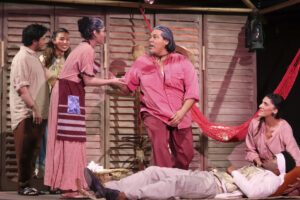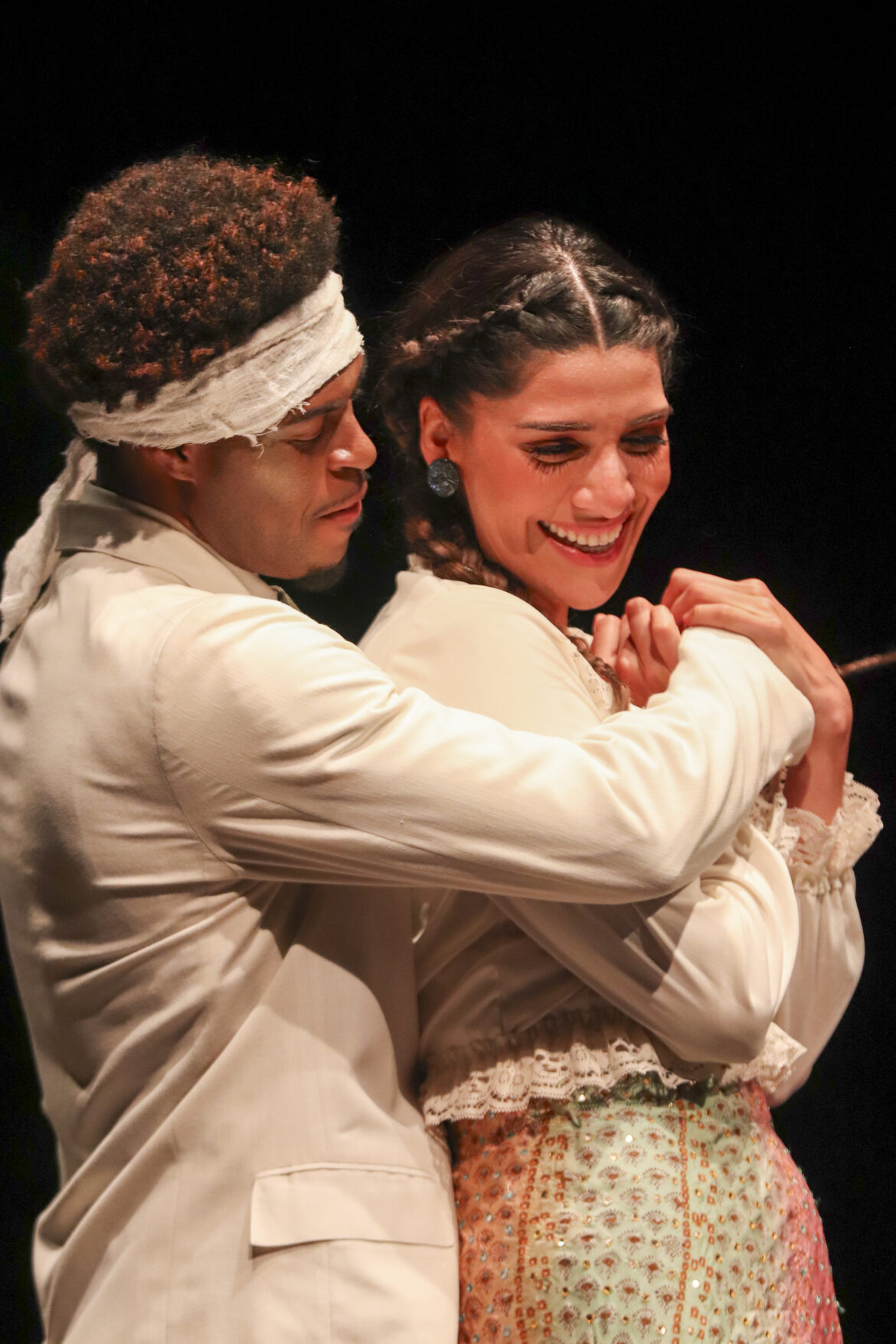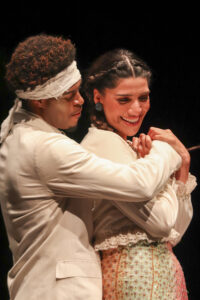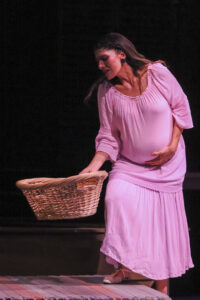To read this story in Portuguese, click here.
Something old, something new. Something sad and shocking blue. Weddings are supposed to be a time to celebrate love, a time to dance as libations flow.
One Brazilian play proves that it only takes one person to drive a wedge between a family in the lead-up to a wedding.
Marisela Treviño Orta’s “The River Bride” premiered at the Dow Arena Theatre on Friday, presented by LAPC Theatre and directed by Esdras Toussaint as the first play of the spring semester.
“The River Bride” has a plot centered around grounded, real-life familial problems, while having an element of the supernatural that comes from beneath the surface of one of South America’s wonders—the Amazon River.
“The River Bride” is not a feel-good love story with a typical, expected ending. The River Bride forces viewers to face uncomfortable family situations, like when love triangles involve one’s own close-knit family.
The stage is set at the dolphin-rich Amazon river, which is a character in itself. The men in a small family, Duarte (Angelo Rosales) and Sr. Costa (Jacob B. Gonzalez), who are fishermen by trade, scoop up a strange, fully-dressed dapper man from the Amazon. Meanwhile, bride-to-be Belmira (Emelysse Paez) and Helena (Rocio Ibarra) banter and chit-chat as sisters commonly do.
There are two stand-out monologues in the scene. Gonzalez as Sr. Costa monologues about his dream of the river and his swift courtship with his wife. The Costa relationship is “#goals.”
Moises (Trevor Bowens) washes up to the fishing boat as if dead. The limp Moises is taken to shore like a mermaid. Bowens is convincing damsel-in-distress material in the first scene, but by the third scene, viewers may take Duarte’s side and lose trust in the stranger.
Sra. Costa (Pahola Godinez) has the perfect “there there” moments with her daughters as they declare grievances about one another. Godinez pulls off the chill mom vibe that any daughter would like to be comforted by.
The second notable monologue comes from Ibarra as Helena. Ibarra delivers her lines with pain and insinuates unwittingly that she will not have the ideal life like her mother had.
The river was represented with rippling blue lights projected on the stage floor. Ominous purple lightning bolts were projected onto the jungle backdrop to warn the viewer that something, or someone, was not right.
The lighting through slatted wood panels and on people eavesdropping on conversations is reminiscent of 1940s’ noir films. The only difference is that while most of those classic noir films were in black and white, the noir shadows cast in the scenes in “The River Bride” were juxtaposed with the rich, tropical juicy color story.
There were no elaborate changes in sets, as the single set piece was the magical river with its tempestuous mood. There were a few minor changes in set dressing between scene changes. All-in-all, “The River Bride” was less about set changes and much more about dialogue, character surprises and melodrama.
There are a few moments of dry humor in “The River Bride,” but the story produces more sighs and gasps than chuckles.
Paez brings the complicated Belmira to life with enthusiasm, fiery-ness and innocence. Paez pulls no punches, especially when she as Belmira is “punching down” verbally to her older sister.
Belmira crushes Helena’s dreams and hopes for a happy future. While it was not intentional, Belmira steps on the signature flower that Helena wore on her hair for all of the first two acts, but discards to show her dismay for her failed past relationship.
Helena, the meeker, selfless sister, is seen one year later in the next stage of her adult life, expecting someone new. By the looks of her disheveled hair (a departure from perfect braided hair throughout the first two acts), her happiness is a ship that has sailed down that double-crossing river.
“The River Bride” will leave audiences wondering how family life could be filled with so much complication when living in a quaint, paradise. “The River Bride” should end with “they lived happily ever after,” but instead, even with the supernatural element, it ends in a way that hits closer to reality and to the tough decisions that people make in love and sacrifice.







